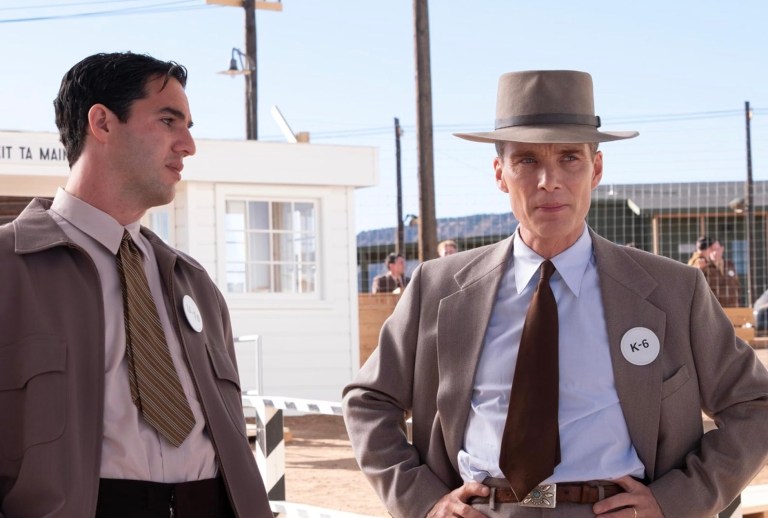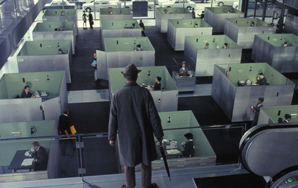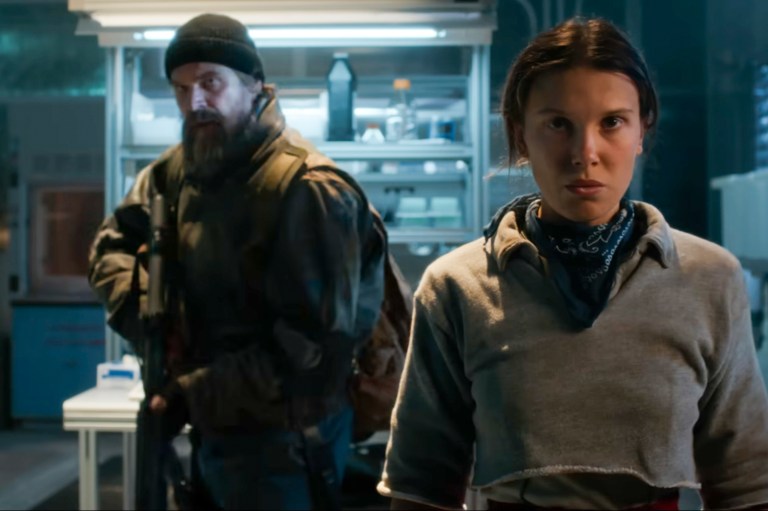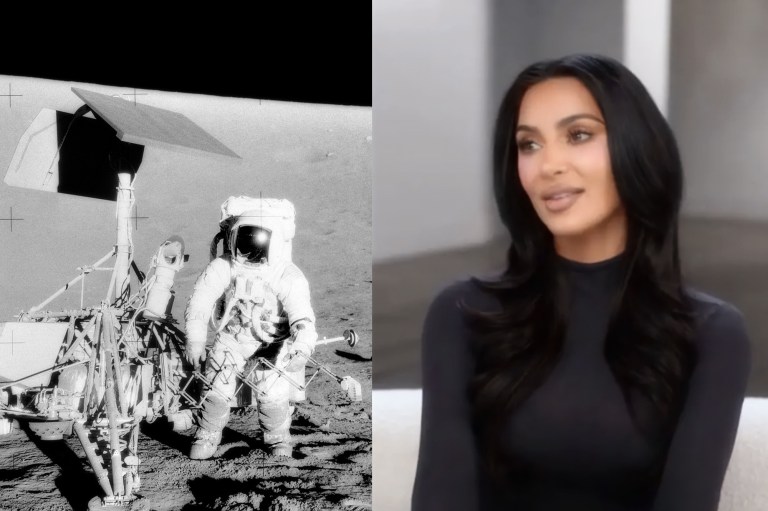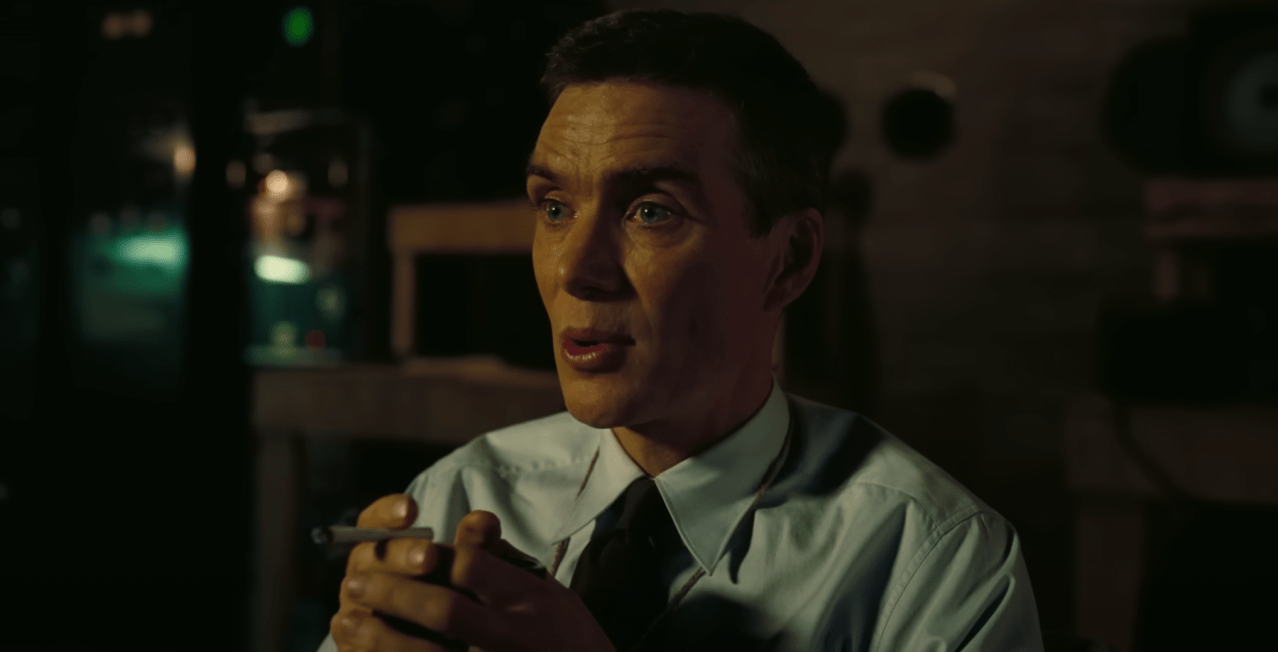
‘Oppenheimer’ Review: Artistic Ambition Cannot Save This Sluggish Misfire
Christopher Nolan has a knack for taking complex matters and breaking them into digestible pieces for his audience. He’s proven himself a cinematic genius —from resurrecting the Batman franchise as a bleak yet high-octane crime saga to creating twisty-turny spectacles like Memento and Inception.
That said, many die-hard Nolan fans forget that he is fallible. For every The Dark Knight, there is an Insomnia or Tenet, reminding us that not everything he touches is gold.
Oppenheimer, though an incredibly artsy portrait of a genius, is not a great film. It’s only slightly entertaining and barely watchable.
Oppenheimer is most definitely not a movie. It is a film. (The latter term here to insinuate its high-brow appeal.) It is designed to be artistic and thoughtful — not to sell popcorn or action figures. I understood that going in, yet I was still dying for a semblance of action or excitement. Even in the most mundane Nolan films, there are bursts of thrilling energy, significant twists, or some sort of mind games to torment you long after the credits roll. This had none of those things. It was a straightforward story about an enigmatic individual — told in a non-linear fashion.
Although revolving around the creation of the atomic bomb during the largest war in history, there is nothing visually in place to create a heightened sense of consequence. Instead, the film jumps between the past and present (the 1950s) every two minutes, becoming sluggish and exasperating — all while failing to create the sense of urgency it should be cementing.
The majority of Oppenheimer is talking heads either in a classroom style setting, political hearing, or informal boardroom. Suspenseful music plays over every interaction and quick cuts are in place to make it feel like tension is brewing, but nothing happens. It’s all fodder for building to interviews of Oppenheimer, as his merit is unceremoniously stripped away.
This film boasts the same major flaw as Interstellar, where a few strong segments and intriguing concepts do not make up for a weak overall product. In Interstellar, the editing was top-notch, the music was exhilarating, and the parts with Matt Damon made it watchable but everything else was akin to chewing on a fifty-dollar rubber steak that you can’t send back to the kitchen.
Aside from the forward jumps in time, Oppenheimer’s first act has all the fun bits. He’s young and traveling the world. He’s full of vigor and able to tackle any challenges. We get to meet Niels Bohr and Albert Einstein and learn how revolutionary Oppy’s theoretical astronomy and quantum field theories were to mankind (although unappreciated at the time).
Somehow in all this, Cillian Murphy comes off without nuance. He’s hauntingly dead-eyed, neurotic without charm, and confident while rarely right: a total antithesis of what we’re told vs what we’re seeing. Unfortunately, this sums up most of the picture. This was easily the most enjoyable part of the film and there are a few fun fleeting moments, during which we’re spoon-fed some nuclear physics and get to share in the excitement of man’s advancement.
Hour two is an epic slog where Oppenheimer endeavors to build a bomb while constantly getting pulled back into the fun of a formal inquest (led by Robert Downey Jr.). It’s got all the excitement of a Tuesday on CSPAN injected with countless big-named talents who have cameos for undisclosed reasons.
Casey Affleck has an all-too-long tense interview that should have been cut. Rami Malek has no speaking role, seemingly cast as an extra. They, among others, partake in segments that add massively to the running time but not the depth of the story.
When the bomb is finally built, we are foaming at the mouth for something to happen. This part does satisfy and the forced starvation has turned us into a feeding frenzy when we finally get our explosion. The editing of this segment and storytelling is Nolan at his finest.
After this part, everyone in the theater checks their watch and readies for the credits…only to realize there’s an hour left. This is where the energy of Oppenheimer implodes, ruining what could have been an otherwise decent flick.
All in all, this film is very reminiscent of JFK by Oliver Stone. In the 1990s, Stone made some memorable movies and was a huge draw. JFK was touted to be a masterpiece and, likewise, had an insanely deep cast of characters. What it turned out to be was a three-hour courtroom trial — a dentist’s drill of an experience that built zero anticipation for a punchline that we all knew walking in the door. Sure, Oppenheimer will undoubtedly get some Oscar nods for being an artsy endeavor in a summer sea of fluff, but it will not stand the test of time.
There were no standout acting performances, nor were the characters allowed to prosper as cuts and forced time jumps severed arcs. Overall, the film suffers from a stale script that never made us feel the importance of the achievement.
Other than shooting this entirely on 70mm film and trying to get people to see it in IMAX, there’s little aside from great editing and heightened musical cues that keep our attention. This is a wide miss for Christopher Nolan. When it comes to my difference of opinion with others, I will happily shout that, in this instance, the emperor has no clothes.
